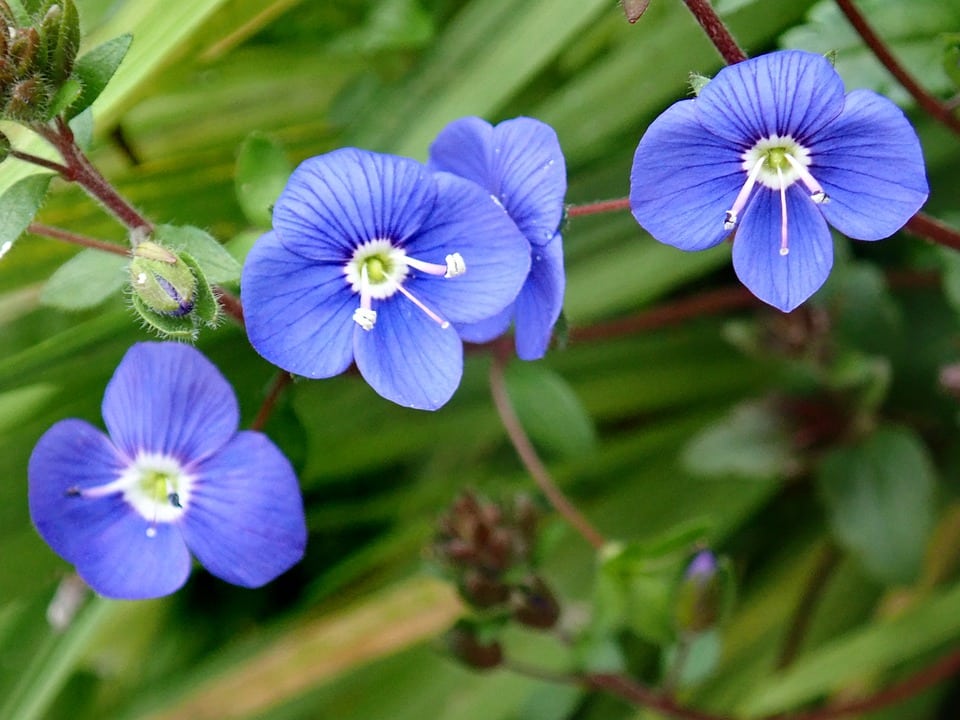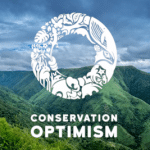Wondering what went right this week in the conservation world? We’ve got you covered with our Conservation Optimism Round-Up! We are collating stories of optimism from around the globe so that you never miss your dose of weekly motivation.
1. White rhinos return to Mozambique park after 40 years
” A Mozambican park welcomed its first white rhinos in 40 years on Friday after 19 of the threatened animals completed a 1,600-kilometre (thousand-mile) truck ride from South Africa, conservationists said. The rhinos were reintroduced to Zinave National Park in southern Mozambique under an initiative to restore wildlife and boost the local economy. “
After an absence of 40 years, White #Rhinos have been #reintroduced to Zinave National Park in #Mozambique as part of a long-term #rewilding program!#nationalparks #wildlife #parks #nature #wildlife #conservationoptimism #conservation #LetNatureThrivehttps://t.co/FOMDbiLcPV
— Global Conservation Solutions (@_GCS_) July 15, 2022
2. A New Calf Provides Hope for Endangered Southern Resident Orcas
” The Center for Whale Research, which maintains the official census for the Southern Resident population, confirmed the birth of a new calf to Hy’Shqa (J37). This new baby is designated J59, as the 59th official member of J pod and joins brother T’ilem I’nges (J49) as part of Hy’Shqa’s growing family.”
Here’s a dose of #ConservationOptimism this #WorldOrcaDay.
— BES-Net (Biodiversity and Ecosystems Network) (@BESNet_UNDP) July 14, 2022
Even as orcas continue to face numerous threats to their survival, the birth of a new calf offers hope 🤞that the endangered species can one day recover.
Read the full story ➡️ https://t.co/pKabztEQML@WorldOrcaDay @WWF
3. Data from droppings: Researchers draw up a genetic ID map for chimps
” As part of a broader project studying the cultural and genetic diversity of chimpanzees across Africa, researchers have used fecal samples from 48 sites across the continent to create a genetic identity data set of chimpanzees across the species’ range. The data set can help conservationists determine the genetic origin of chimpanzees confiscated from the illegal wildlife trade and identify poaching hotspots, researchers say. ”
Data from droppings: Researchers draw up a genetic ID map for chimps.
— InternetOfElephants (@ioelephants) July 14, 2022
Helping conservationists determine the genetic origin of chimpanzees confiscated from the illegal wildlife trade and identify poaching hotspots. https://t.co/x41yVzi6IH#tech4wildlife #conservationoptimism
4. Officially extinct butterfly ‘making a comeback’ in UK
” An elusive butterfly that has been officially extinct in Britain for more than half a century has been discovered breeding on the rewilded estate of Knepp in West Sussex. The large tortoiseshell mysteriously vanished more than 50 years ago but this week male and female butterflies – much larger than the small tortoiseshell and without its white patterning – have been spotted at Knepp for the first time. “
“We always think we’ve got to intervene and bring things back but again and again we see that it’s just about habitat and providing the space for nature and many species can come back on their own.” https://t.co/JMjYkblI21 #rewilding #conservationoptimism
— Citizen Zoo (@CitizenZoo) July 14, 2022
5. The EU plans to utilise food import trade measures in an effort to stem the decline of global pollinator populations
” Buglife has strongly welcomed steps by the EU to effectively ban the import into the EU of crops grown with two widely used neonicotinoid insecticides, via the adjustment in setting minimum residue levels of Clothianidin and Thiamethoxam for imported food to zero. “
"Buglife has strongly welcomed the momentous step by the EU to effectively ban the import into the EU of crops grown with two widely used neonicotinoid insecticides."
— Buglife (@Buzz_dont_tweet) July 13, 2022
Want to know more?
👇https://t.co/m5OkdV79ul #ConservationOptimism #Pollinators #BetterTogether @WWFEU pic.twitter.com/ShlHnBA895
6. Plantlife Brecks volunteers in the UK, collect seeds from last bastion of UK’s rarest plants
” Trained volunteers from the Breckland Flora Group – coordinated by Plantlife – have been licensed to carefully collect the seeds of 15 priority local wild flowers which can be found on remnants of heathland habitat between Mildenhall, Thetford and Brandon. The collections are part of the Millennium Seed Bank’s UK Threatened Flora Project which aims to save UK plants at risk of national extinction due to environmental change and the small or fragmented nature of their populations. “
#ConservationOptimism: The energetic Breckland Flora Group of volunteers co-ordinated by Plantlife have been collected the seeds of 15 rare and threatened wild plants in the #Brecks to ensure they're included in Kew's Millennium Seed Bank https://t.co/8yZdT4qpgE
— Plantlife (@Love_plants) July 12, 2022
7. Hopeful news for one of the rarest birds in Australia
” A recent survey in northern Victoria uncovered a record number of plains wanderers – small, quail-like birds that live only in eastern Australia grasslands, and represent an ancient lineage of birds that evolved in Gondwana more than 100 million years ago. La Trobe University Ph.D. student, Dan Nugent, said the team found more plains wanderers during the recent survey than since monitoring began back in 2010. “We detected 60 adults and 41 chicks. This is more than double the previous best result in 2018 when 30 adults and 17 chicks were detected,” Nugent said. “
A recent survey of Plains Wanderer has detected more than double the number found in 2018 #ConservationOptimism https://t.co/HeVNFT9siS
— RareBirdAlertUK (@RareBirdAlertUK) July 12, 2022
Have a story to share for our weekly round-up? Use #ConservationOptimism on Twitter, Facebook, LinkedIn and Instagram!


